9 Foods Inflammation Experts Never Eat

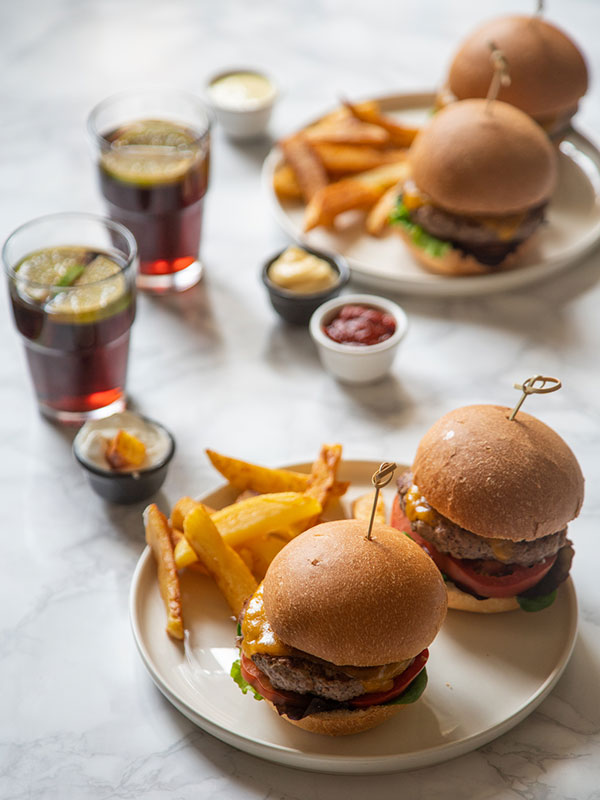
If there's one word that's entered the public consciousness in a big way over the past few years when it comes to understanding our food choices, it's inflammation. Gut health has garnered much more attention as of late, and keeping the body balanced and systems functioning properly have become bigger priorities than counting calories. For those looking to eat well and feel good, avoiding inflammatory foods is one of the biggest steps in getting the gut and body back on track.
But with all the fad diets and passing trends, navigating which foods are good for you and which are better left uneaten isn't easy. For that reason, we reached out to two doctors and a nutritionist to weigh in on the top foods that cause inflammation. Before we delve into their list, it's important to have an understanding of what inflammation really is.

"Inflammation is an immune response when the body thinks that there is a threat," defines registered dietitian nutritionist Maya Feller, MS, RD, CDN, CLC, of Maya Feller Nutrition. "Foods that disrupt the ecosystem of the gut can drive inflammation, as most of the body's immune system is stationed in and around the gut," explains Max Lugavere, health and science journalist and author of Genius Foods. He notes that this is because for the vast majority of our evolution, our potential for consuming bacteria that could make us sick was great. "So when our immune system is activated in the gut, that can affect the rest of our body, including how we think and feel," he says. "Our food supply has also become awash in 'food-like products,' a term coined by author Michael Pollan, which help to keep our blood sugar chronically elevated and supply an excessive amount of raw materials for our body's inflammation pathways."

However, making the right food choices can help keep your body out of this inflammatory state. "The foods you consume on an everyday basis play a big role in an inflammatory response in your body," assures Edison de Mello, MD, Ph.D., board-certified integrative medicine physician and founder and medical director of the Akasha Center in Santa Monica and ActivatedYou. Feller notes that "foods that provide an abundance of vitamins, minerals, and phytonutrients from whole and minimally processed sources help to reduce inflammation while promoting improved health outcomes."
Below we list the biggest inflammatory foods and what to eat instead.
1. Sugars

"Unfortunately, sugar is everywhere," says de Mello. "Excess sugar reduces the immune system's ability to fight off infections and tissue damage." He advises to try and limit foods, desserts, and snacks with excess sugar. "Refined sugars have been linked to increased insulin resistance, raised uric acid levels, raised blood pressure, and increased risks of fatty liver diseases," he continues. It's not just foods that you have to be aware of when reducing your sugar intake. "Consuming a diet that is rich with sugar-sweetened beverages increases oxidative stress and increases the development of cardiovascular diseases and associated risk factors," cautions Feller. Furthermore, de Mello warns that an extensive number of foods and beverages contain high-fructose corn syrup, a known source of mercury, a toxic heavy metal.
What to drink instead: Feller advises to swap most drinks to no-added-sugar beverages such as water. "Yes, some juices fall into this category, but in my opinion, they should still be consumed in moderation if at all, and skip the zero-calorie and diet drinks."
2. Trans Fats

"Trans fats should be completely banned from your diet," asserts de Mello. "They increase bad cholesterol, promote inflammation, obesity, and resistance to insulin." He warns that they can be found in fried foods, fast food, and commercially baked goods. De Mello suggests avoiding foods prepared with partially hydrogenated oil, margarine, and vegetable oil—noting crackers and cookies are among them.
3. Saturated Fat
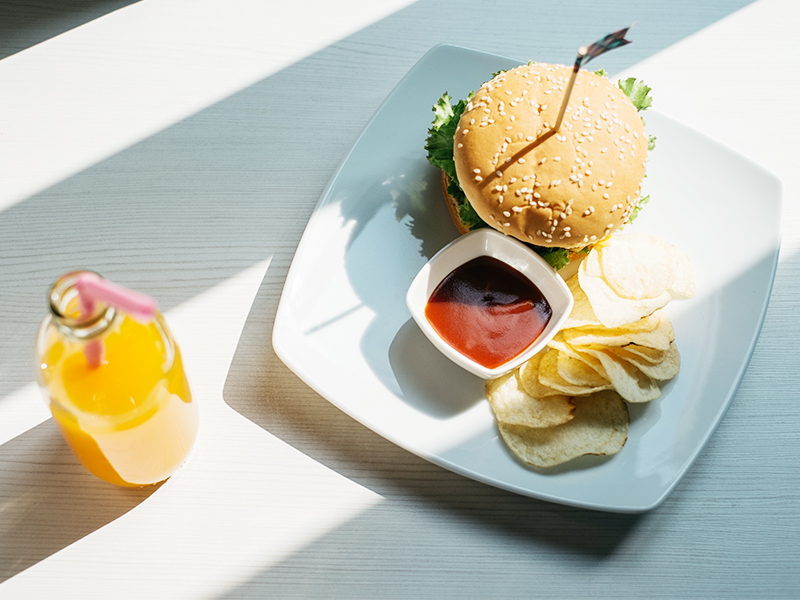
"Specifically consuming a lot of the most common saturated fats—lauric acid, myristic acid, palmitic acid, and stearic acid—are associated with increased risk coronary artery disease (CAD)," says Feller.
What to eat instead: "Swap for moderate amounts of plant-based mono- and polyunsaturated fats, such as nuts, seeds, avocado, and seafood that provide omega-3 and reduce inflammatory markers and risk for CAD," advises Feller.
4. Dairy
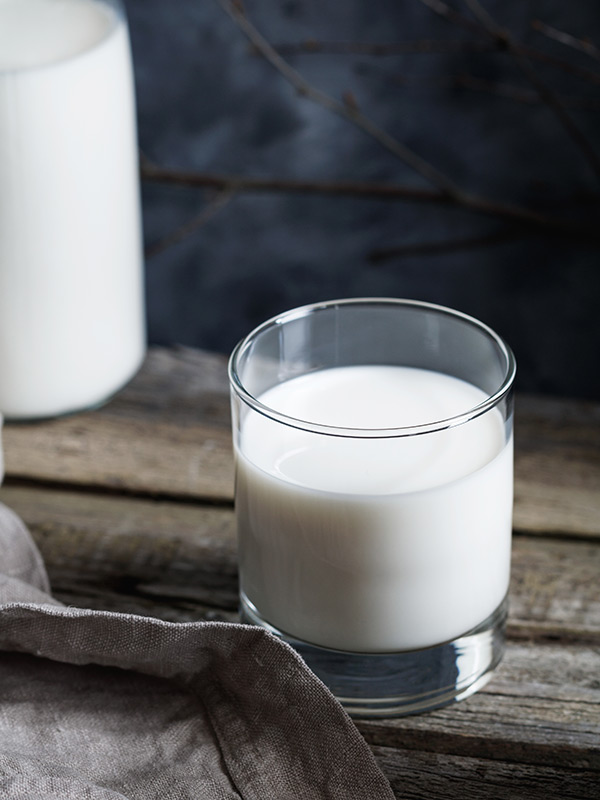
"Dairy is hard on the body," states de Mello. "Milk contains casein, an inflammatory protein, a common allergen that can trigger inflammation, stomach problems, skin rashes, hives, and even breathing difficulties. Most of us—70% of the global population—are intolerant to lactose, the sugar in milk, and cannot easily digest dairy."
5. Factory Farm and Processed Meat

"Animals who are fed with grains like soy and corn promote inflammation," explains de Mello. "These animals also gain excess fat and are injected with hormones and antibiotics." Processed meat is also highly inflammatory because it contains "chemical food additives, colorings, and sodium, all contributing to inflammation," says de Mello. Feller also notes how "ultra-processed meats contain sodium nitrate and nitrites along with other additives. The NIH cautions against eating ultra-processed meats as there is an increased risk of developing some cancers and diet-related chronic illnesses."
What to eat instead: "Always opt for organic, free-range meats that have been raised in pastures and are grass-fed," advises de Mello. Feller suggests swapping out factory-farm and processed meat for "high-quality meat, poultry, and seafood without additives that are abundant in vitamins and minerals and antioxidant-rich heart-healthy fats in seafood."
6. Refined Grains
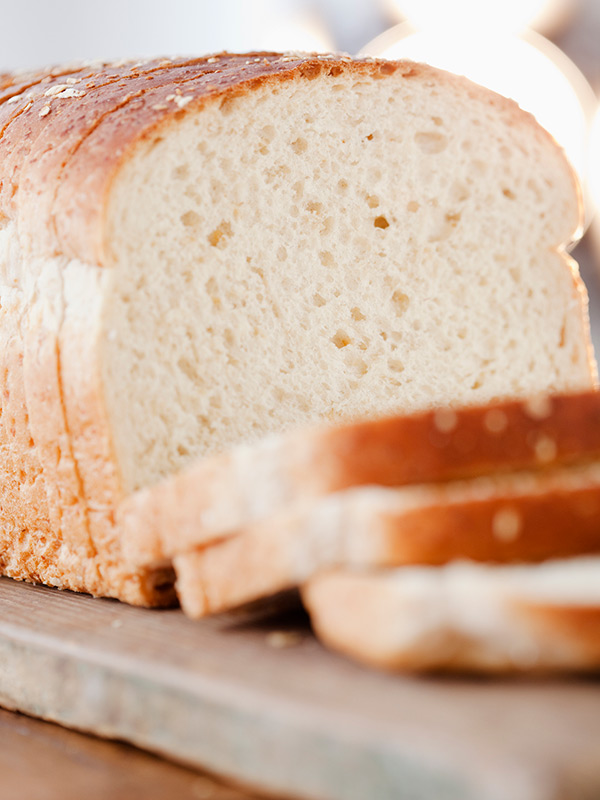
"'Refined' products have no fiber and have a high glycemic index," says de Mello. "They are everywhere: white rice, white flour, white bread, pasta, pastries." Feller explains that ultra-processed refined grains quickly metabolize as sugars. This can result in a spike in blood sugar as well as inflammatory markers in the blood. "Regular exposure to ultra-processed refined grains provides an overabundance of additives, stabilizers, preservatives, added sugars, lab-made fats, and added salts—all of which promote inflammation and poor health," she notes. "When [refined grains are] consumed in constant excess, there is an increased risk of developing diet-related chronic illnesses."
What to eat instead: Feller advises to "swap for a wide variety of whole grains that provide vitamins and minerals with antioxidant properties." De Mello notes that even consumption of the whole-grain counterparts of things like bread, rice, and pasta should be in moderate amounts.
7. Artificial Food Additives
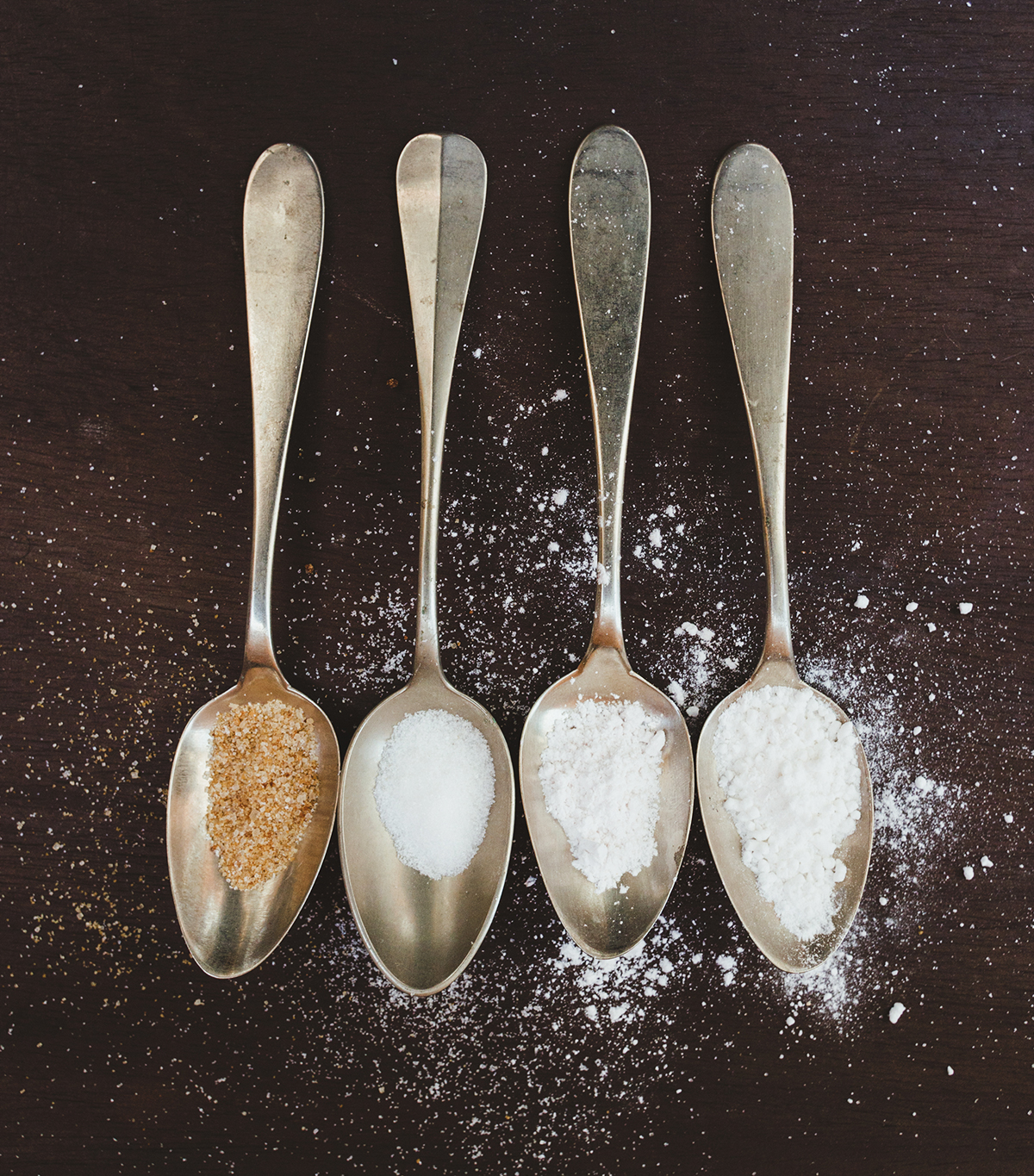
To avoid inflammation, a useful strategy is steering clear of processed foods. "Aspartame and MSG are two common food additives that can trigger inflammation responses," notes de Mello. "They must be completely avoided. In addition to the increasing amount of chemicals and toxins your liver has to detoxify, recent research suggests that artificial sweeteners also contribute to weight gain. Aspartame is often added to diet foods and diet beverages."
8. Agave Syrup
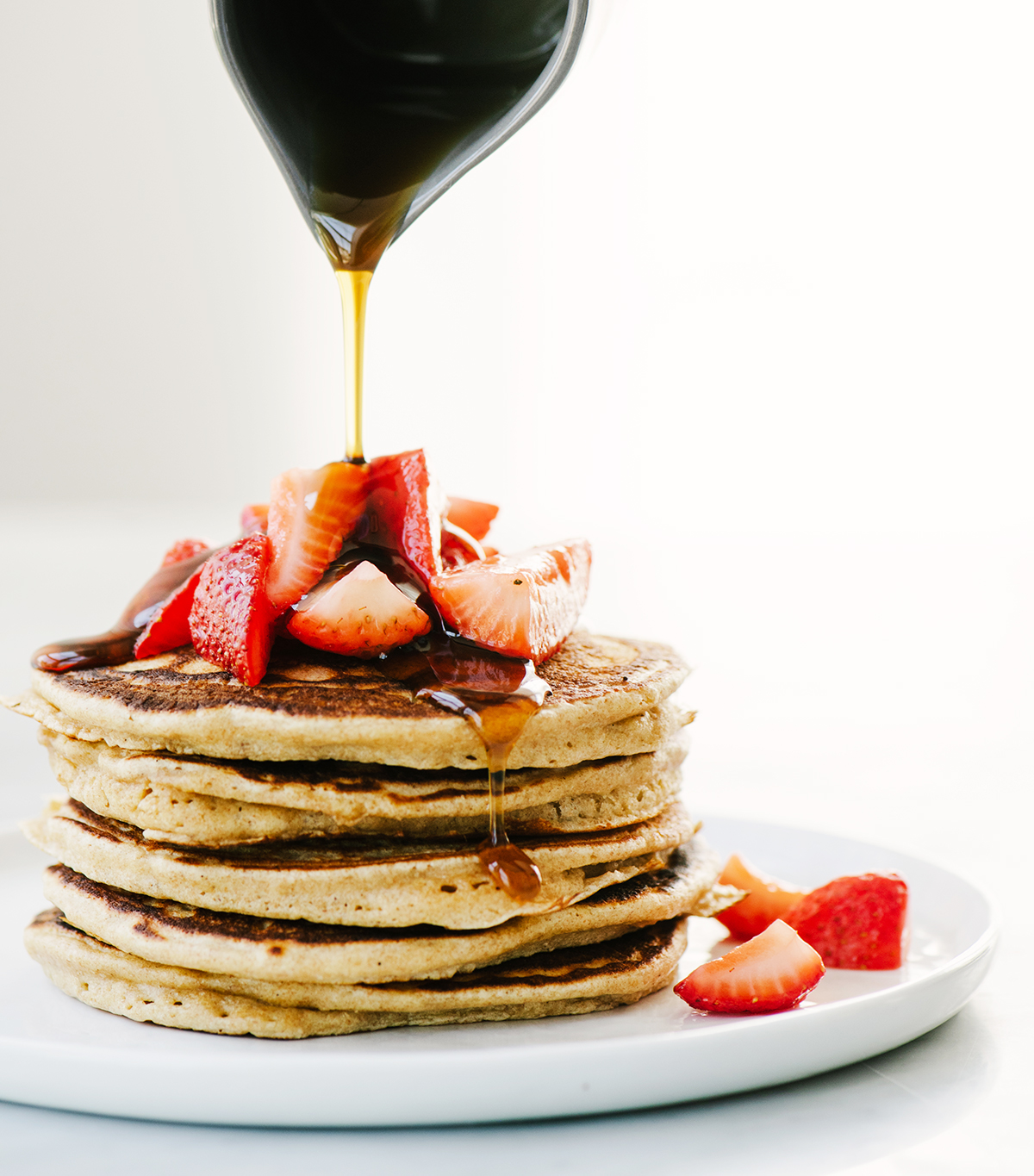
Surprising enough, agave syrup makes the bad list when it comes to foods that cause inflammation. As Lugavere describes, agave syrup—a common sugar replacement that was once deemed as a healthy alternative—is "a processed food that is almost 90% fructose, which, when consumed in excessive amounts, can promote impaired fructose absorption in the small intestine and cause the gut to become unnecessarily permeable, thus promoting inflammation," he warns.
9. Alcohol

Last but not least, alcohol can be a big culprit when it comes to triggering inflammation. "Regular consumption of alcohol puts a lot of stress on your liver, your main organ of detoxification, and causes irritation and inflammation of many organs," de Mello explains.
Next up: 7 Metabolism Myths That Are Just Plain Wrong
This article was originally published at an earlier date and has since been updated.
This article is provided for informational purposes only and is not intended to be used in the place of advice of your physician or other medical professionals. You should always consult with your doctor or healthcare provider first with any health-related questions.

My mom circa 1975
Who are your 5 favorite people to follow on Twitter/Instagram?@fingermonkey @katefoley @idea.ltd @designmilk @overheardla
What's the fashion essential you can’t live without?My black-on-black Birkenstocks. If that even counts.
What's your desert island album?Radiohead's OK Computer. Or maybe Pablo Honey for something a bit more uplifting if I'm going to be stuck by myself.
What's your favoriteReplica Shopping story? California Dreaming with Poppy Delevingne